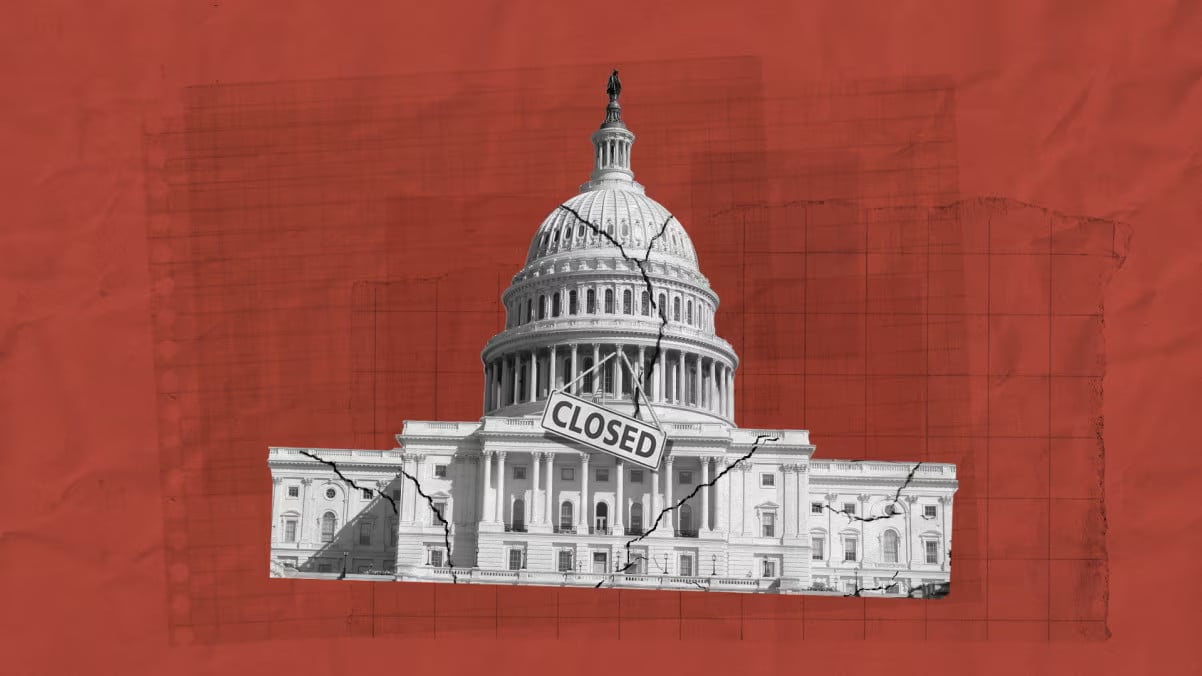Photo: CNN
If you’ve been in the middle of buying or selling a home lately, you might have noticed something unusual — more deals than usual are getting delayed, or worse, stuck in limbo. The reason? The ongoing federal government shutdown that began this fall is now rippling through the U.S. housing market.
While political headlines often dominate the conversation, this shutdown has quietly created real problems for homebuyers, sellers, and real estate professionals across the country. Let’s break down what’s happening — and what it means for the market, especially here in New England.
Loan Approvals Are Slowing Down
Many homebuyers rely on government-backed loans such as FHA, VA, or USDA mortgages. Under normal circumstances, these programs help thousands of buyers, particularly first-timers or those in rural communities, secure financing with favorable terms.
But during a government shutdown, parts of these agencies either close or operate with limited staff. That means new loan applications pile up, and approvals slow to a crawl. Even flood insurance renewals and verifications, which are required for certain properties, have been delayed — creating a chain reaction for closings.
According to a report from MarketWatch, some buyers have already had to push back their closing dates because their loan files couldn’t be processed in time. For families who’ve already given notice on a rental or scheduled movers, these delays can be more than just inconvenient — they can be financially and emotionally stressful.
Sellers Are Feeling the Ripple Too
This isn’t just a buyer’s problem. Sellers are also caught in the uncertainty. In markets with a higher concentration of federal employees — such as parts of Virginia, Maryland, and Washington D.C. — agents have reported slower showings and fewer offers.
Even in regions like New Hampshire, where federal employment isn’t as concentrated, ripple effects can still show up. Transactions that depend on USDA loans (often used in rural or suburban areas) are seeing longer timelines. The result: more homes sitting on the market longer, and in some cases, price reductions as sellers adjust to the new pace.
Why It Matters for Real Estate Professionals
For agents, lenders, and brokers, this kind of disruption can make an already complex transaction process even trickier. Deals that looked solid a few weeks ago may suddenly need extensions or addendums.
It’s also testing communication skills. Now more than ever, clients need clear updates and realistic expectations. A simple “don’t worry, this happens sometimes” won’t cut it. Buyers and sellers want to know why their deal is delayed, how long it might take, and what options they have in the meantime.
What You Can Do If You’re in the Market
If you’re buying, selling, or refinancing right now, here are a few practical steps to keep your transaction moving as smoothly as possible:
- Build in extra time. Ask your agent or lender to include contingency language in your contract for possible government-related delays.
- Stay in close touch with your lender. Even private lenders rely on some federal verifications (like tax transcripts), so make sure your loan officer keeps you updated.
- Don’t assume it’s business as usual. Some closings may still go through on schedule — others won’t. The earlier you spot an issue, the easier it is to adjust.
- Consider short-term flexibility. If you’re a seller, be patient with buyers who are affected by financing delays. For buyers, be ready to negotiate extensions if needed.
The Bigger Picture
Every time a government shutdown happens, the housing market reminds us how interconnected everything is. From flood insurance to loan processing to buyer confidence, even temporary disruptions can have long-term ripple effects.
For now, the best approach is patience, preparation, and proactive communication. Whether you’re an agent managing listings or a buyer trying to close before the holidays, understanding the factors at play can make all the difference.
Once federal operations resume, many expect the backlog of loan approvals and inspections to clear quickly — but it could take several weeks for the market to feel fully normal again.


